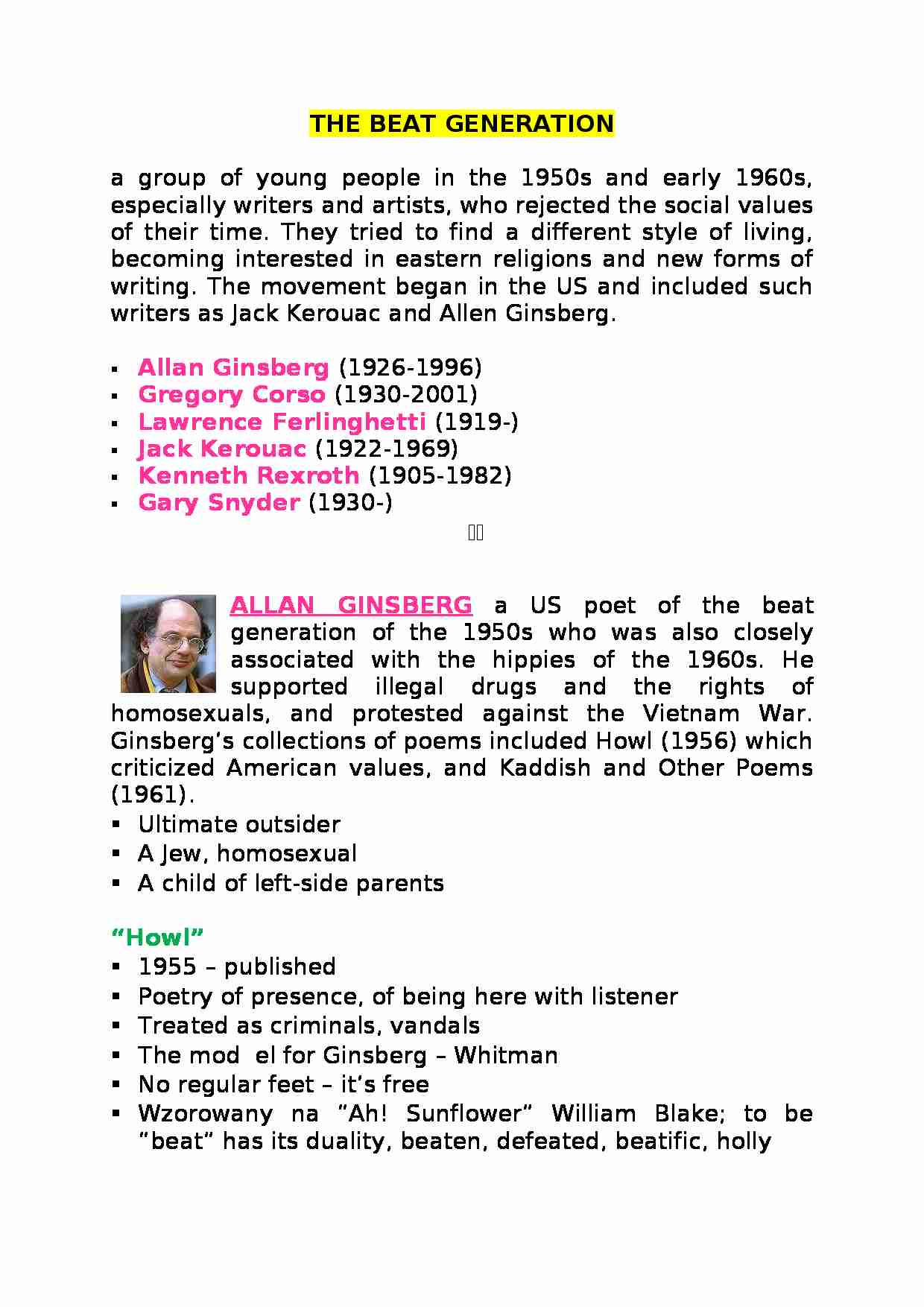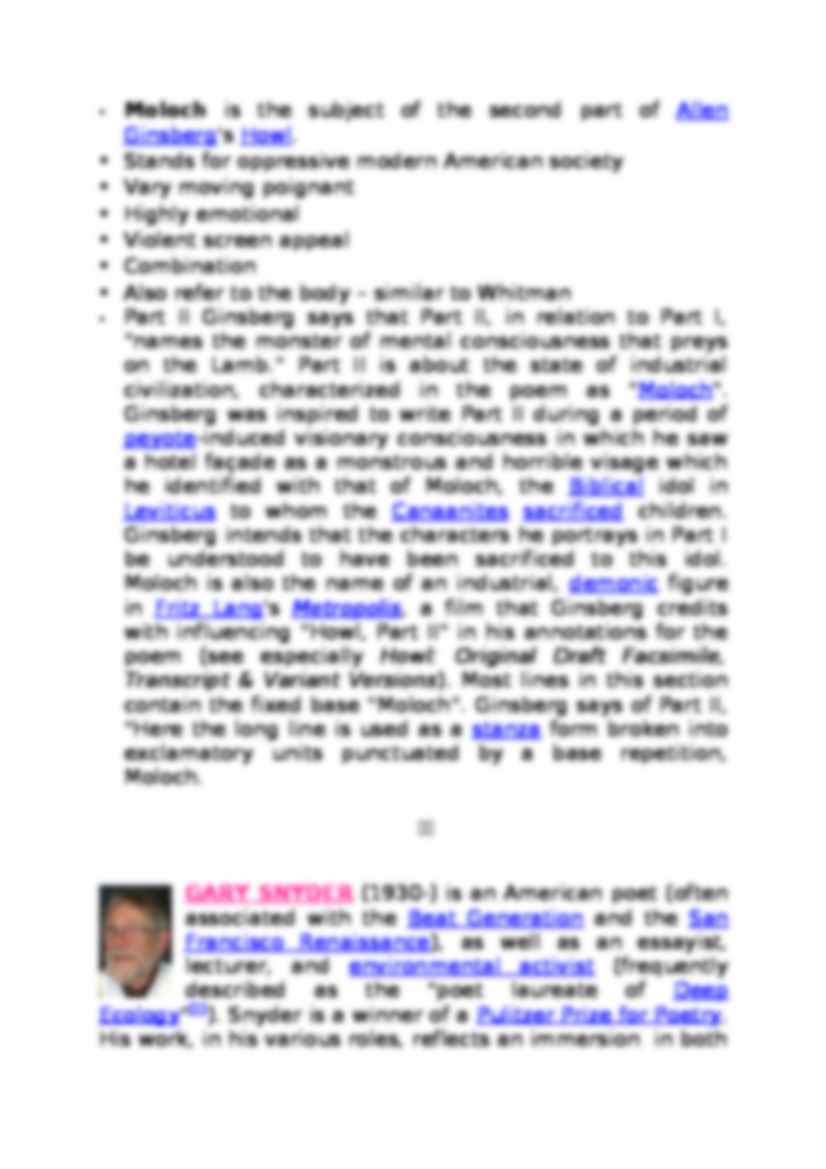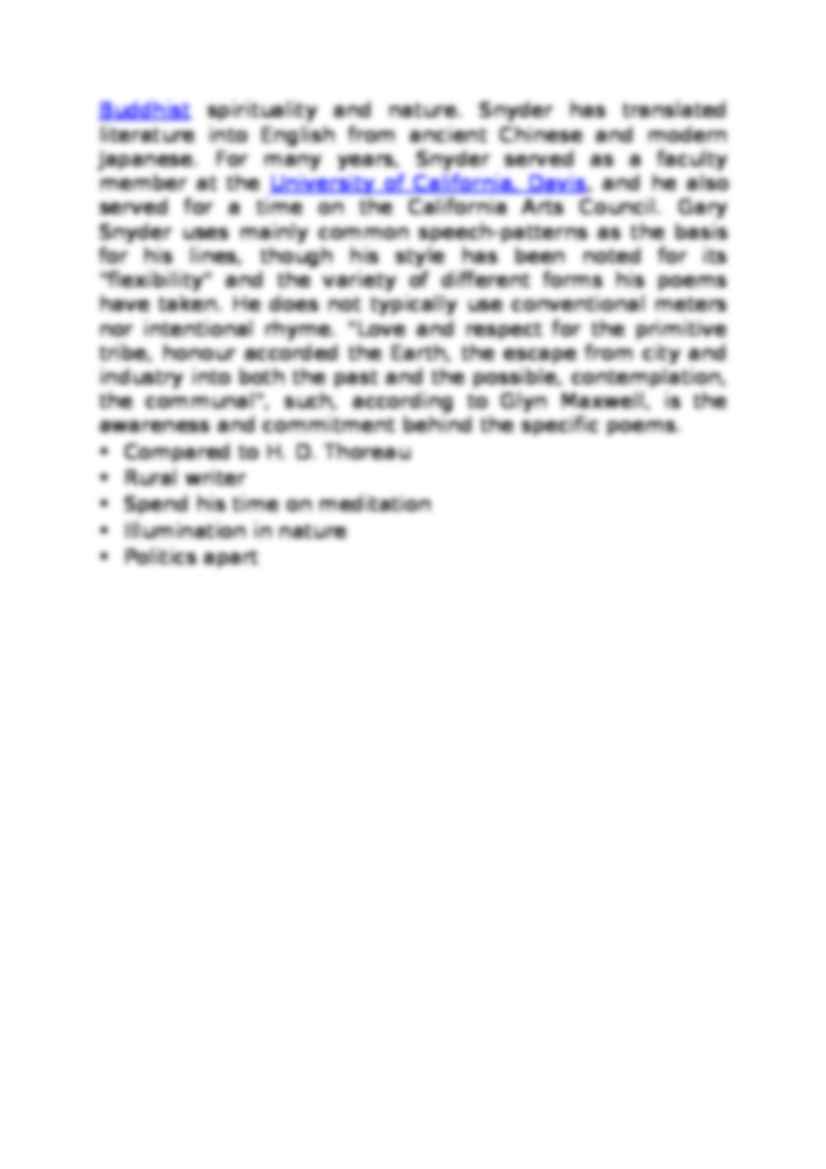To tylko jedna z 3 stron tej notatki. Zaloguj się aby zobaczyć ten dokument.
Zobacz
całą notatkę



the Beat Generation
a group of young people in the 1950s and early 1960s, especially writers and artists, who rejected the social values of their time. They tried to find a different style of living, becoming interested in eastern religions and new forms of writing. The movement began in the US and included such writers as Jack Kerouac and Allen Ginsberg.
Allan Ginsberg (1926-1996) Gregory Corso (1930-2001)
Lawrence Ferlinghetti (1919-)
Jack Kerouac (1922-1969)
Kenneth Rexroth (1905-1982)
Gary Snyder (1930-)
Allan Ginsberg a US poet of the beat generation of the 1950s who was also closely associated with the hippies of the 1960s. He supported illegal drugs and the rights of homosexuals, and protested against the Vietnam War. Ginsberg's collections of poems included Howl (1956) which criticized American values, and Kaddish and Other Poems (1961).
Ultimate outsider
A Jew, homosexual
A child of left-side parents
“Howl”
1955 - published
Poetry of presence, of being here with listener
Treated as criminals, vandals
The mod el for Ginsberg - Whitman
No regular feet - it's free
Wzorowany na “Ah! Sunflower” William Blake; to be “beat” has its duality, beaten, defeated, beatific, holly
Moloch is the subject of the second part of Allen Ginsberg's Howl.
Stands for oppressive modern American society
Vary moving poignant
Highly emotional
Violent screen appeal
Combination
Also refer to the body - similar to Whitman
Part II Ginsberg says that Part II, in relation to Part I, "names the monster of mental consciousness that preys on the Lamb." Part II is about the state of industrial civilization, characterized in the poem as "Moloch". Ginsberg was inspired to write Part II during a period of peyote-induced visionary consciousness in which he saw a hotel façade as a monstrous and horrible visage which he identified with that of Moloch, the Biblical idol in Leviticus to whom the Canaanites sacrificed children. Ginsberg intends that the characters he portrays in Part I be understood to have been sacrificed to this idol. Moloch is also the name of an industrial, demonic figure in Fritz Lang's Metropolis, a film that Ginsberg credits with influencing "Howl, Part II" in his annotations for the poem (see especially Howl: Original Draft Facsimile, Transcript & Variant Versions). Most lines in this section contain the fixed base "Moloch". Ginsberg says of Part II, "Here the long line is used as a stanza form broken into exclamatory units punctuated by a base repetition, Moloch.
... zobacz całą notatkę






Komentarze użytkowników (0)